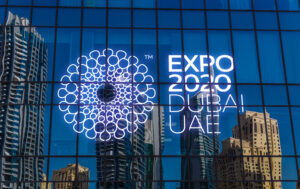The United Arab Emirates, a hub of international commerce, announced Tuesday that it would shift its weekends to bring them more in line with the Western calendar and global markets, once again showing its willingness to part ways with its Arab neighbors.
The government declared a four-and-a-half day workweek, moving the weekend from Friday and Saturday to Saturday and Sunday. It made Friday, the Muslim holy day, a half-day of work that ends at noon, just in time for the communal prayer that is normally held in mosques and customarily observed by Muslims.
Like Sunday for Christian communities in the West, Friday is customarily the day Muslims take off to worship and unite with family and friends, and in most Arab countries, the standard workweek is Sunday through Thursday. Changing that practice, experts say, shows just how ready the U.A.E. is to forgo tradition in order to attract foreign investment and talent.
In a statement, the Emirati government said the new weekend, which will begin on Jan. 1, “enhances the integration of the national economy with the various economies and global markets and ensures the matching of the days of exchanges and commercial and financial transactions.”
Private businesses can set their own workweeks, but the new schedule, which applies to government agencies, creates a new set of expectations.
The U.A.E., an oil-rich state on the Persian Gulf, has long been a commercial and tourism center, heavily dependent on a foreign work force that outnumbers its citizens.
It attracts international workers with high wages and low taxes and a relatively safe and socially liberal atmosphere that circumvents religious traditions such as prohibitions on alcohol and conservative dress codes.
Last year the country made a striking new set of changes to offset the impact of the pandemic on the economy and continue to cast the U.A.E. as a desirable place to live and work for foreigners. It introduced tougher laws against the harassment of women, allowed unmarried couples to live together and completely decriminalized the consumption of alcohol. And in January, it opened a pathway to citizenship for expatriates.
“Once again, the Emirates sets itself as a pioneering country that’s looking to the future in a brave and flexible way,” said Nabil al-Qadi, president of Khawarizmi International College, a private university in Abu Dhabi, the Emirati capital. “I don’t see any conflict between the decision and religion or the fact that Friday is a holy day.”
While the U.A.E. has become more liberal socially, politics are a very different matter. The country is a federation of seven monarchies, where dissenting voices are rarely heard or tolerated.
Top-down decision-making gives the ruling sheikhs unchallenged control over policy, which can yield sharp turns that surprise U.A.E. residents and the rest of the region. One landmark moment came in September 2020 when the emirates announced they would normalize relations with Israel, a step that most other Arab countries — and all other Gulf states — have opposed, or at least been reluctant to take.
“The Emirates has always had its own vision and way,” said Abdullah Baabood, an Omani academic and former director of the Gulf Research Center at Cambridge, pointing primarily to its decision and the speed with which it pursued normalizing relations with Israel. “And many of these matters are somewhat perplexing for the average Arab citizen.”
But for many living in the U.A.E., Tuesday’s announcement introduced another tantalizing prospect. At a time when the pandemic has prompted renewed conversations around flexible working styles and four-day workweeks, changing the weekend and making Friday a half day appears to offer a more manageable schedule and a longer break.
“I like it because I work with my foreign offices in Europe and now we’re aligned,” said Yasmeen Seif, an American-Egyptian communications director for a luxury fashion company. She moved to Dubai, the largest city in the Emirates, 13 years ago, and found a place that embraced elements of both sides of her identity — a place that was Arab and has appeal and good marketing, she added.
“All I hear people talking about now is what are we going to do about the Friday brunch,” she said.














